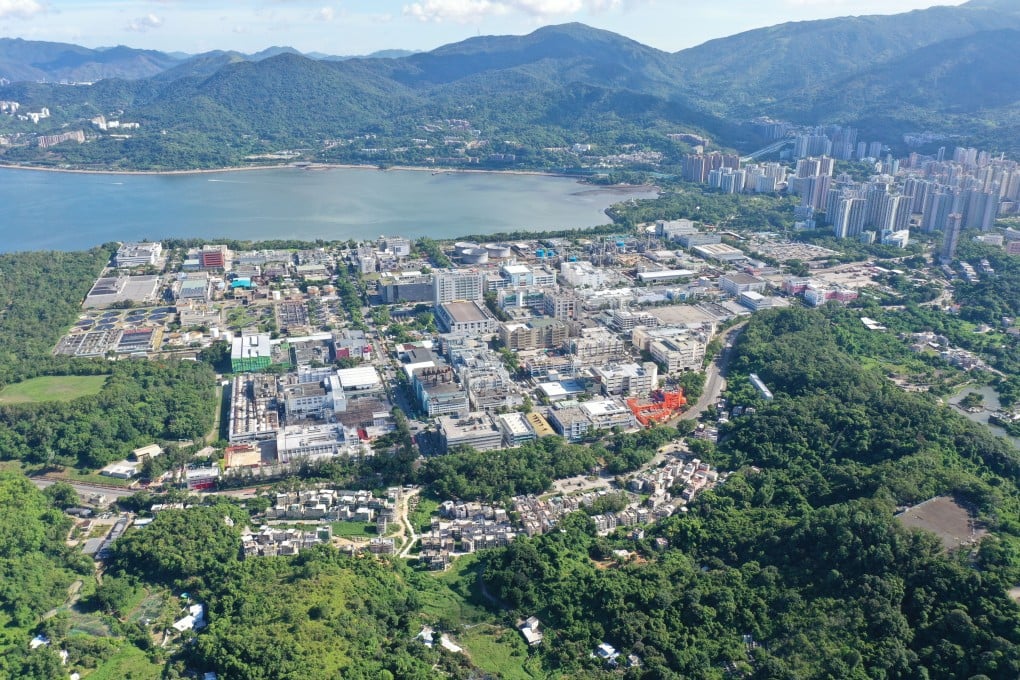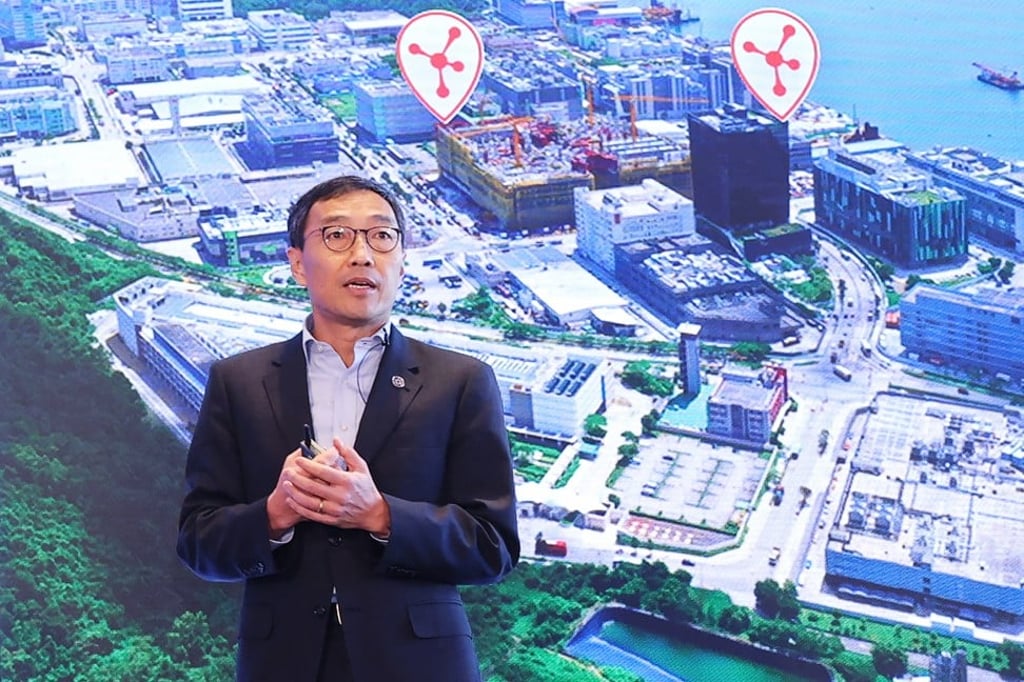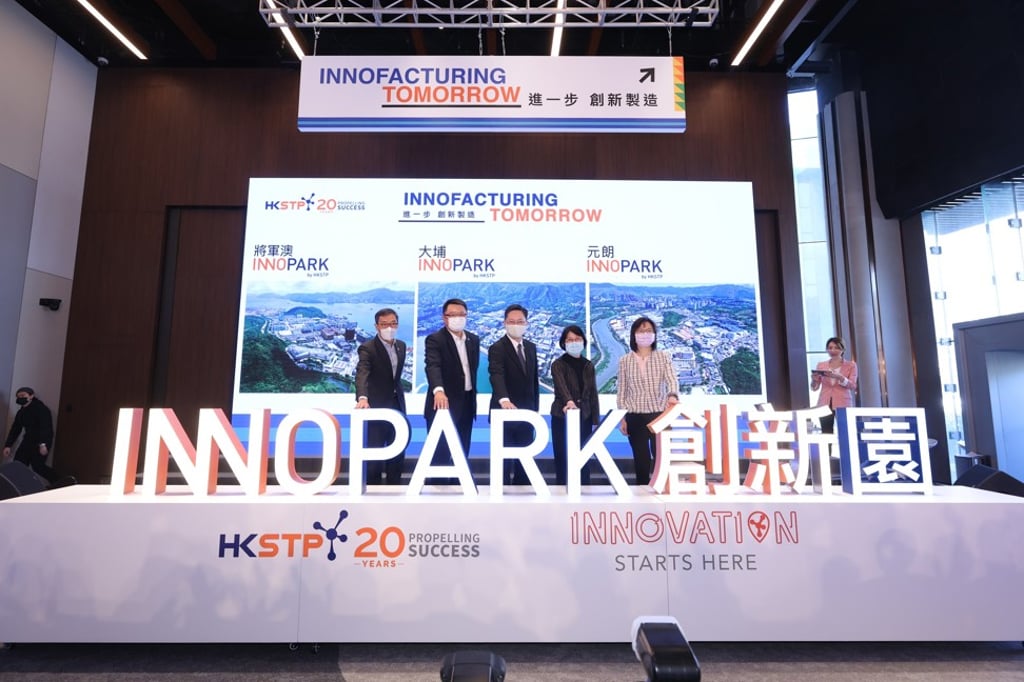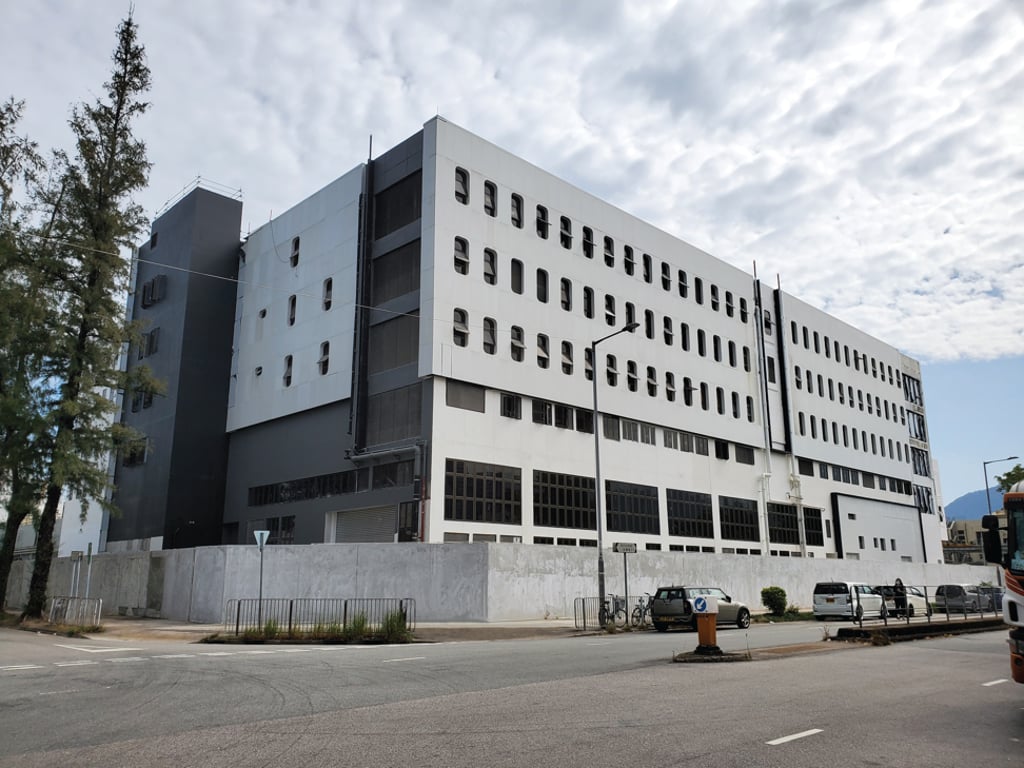Reindustrialisation the key to Hong Kong’s race for productivity and growth in the digital era
- Hong Kong Science and Technology Parks Corporation is supporting the growth of InnoParks to realise the potential of advanced manufacturing
- Revitalising Hong Kong’s manufacturing sector could drive the city’s economy, and forge new industry sectors that generate new skills and jobs

[Sponsored article]
A race for productivity is emerging in this new economic era. Covid-19 has further hampered what has been a “decade-long trend of weak productivity growth”, according to the global business research group, The Conference Board. Long-term productivity is crucial as it improves living standards, creates more and better jobs, higher wages, greater equality and a more diverse economy.
All eyes are on innovation and technology as the answer to the productivity challenge. The International Monetary Fund (IMF) found that as Covid-19 recedes, investment in intangible assets such as digital technologies and patents may result in higher productivity, versus smaller gains from investment in tangible factors like buildings and infrastructure. A 10 per cent rise in intangibles could raise productivity by 4.5 per cent, according to the IMF.
For advanced economies like Hong Kong, intangibles such as technology have to be the focus as the workforce is ageing and population growth is low, while land is scarce with costs continuing to rise. But the key must be to invest in technology that truly makes workers work smarter and more efficiently, and not simply work longer.
Hong Kong’s potential is in reindustrialisation and the prospect of revitalising local manufacturing as a pillar of the city’s economy. Asia, in particular, is seeing rapid adoption of Fourth Industrial Revolution Industry (4IR) technologies such as AI, IoT, data analytics, robotics and automation to fuel new industry.
The city has genuine potential to lead the world in advanced manufacturing processes and precision manufacturing that can drive new products and new sectors but, crucially, forge new skills and career paths.
“Ten to 20 years ago, you couldn’t really see a future through working in the manufacturing sector. But today, with the support of government and the worldwide innovation and technology trend, we see enormous opportunities being created for new talent,” says Albert Wong, chief executive officer of Hong Kong Science and Technology Parks Corporation (HKSTP). “The wave of reindustrialisation is transforming labour-intensive industries to innovation- and technology-driven (I&T) industries, which will be more attractive to the younger generations. This is not about sweating away at the end of production lines on dusty factory floors, but exploring the cutting edge of smart electronics, advanced materials and new industry.”

Hong Kong’s prospects for advanced manufacturing are bright. It has a rich legacy and inherent industrialist expertise combined with growing I&T investment, plus it is located at the heart of the Greater Bay Area – a hotbed of manufacturing and technology innovation with huge market potential for new products and services.
This is being driven by the Hong Kong government’s vision for an I&T-fuelled era of growth, with a total investment of HK$130 billion (US$16.7 billion) in I&T, R&D and development of new land initiatives such as the ambitious Northern Metropolis Development Strategy and the San Tin Technopole, which combines the Hong Kong-Shenzhen Innovation and Technology Park (HSITP) in the Lok Ma Chau Loop.
This ambition extends to a mission for reindustrialisation, which HKSTP is actively supporting by transforming the industrial estates into tech-centric InnoParks. From Yuen Long to Tai Po and Tseung Kwan O, these technology parks are homes to R&D and innovation-focused talent and companies that are accelerating their research and ideas into innovation-driven manufacturing, or “innofacturing”, and market-ready products and services.

Reindustrialisation efforts are intensifying across the region, and each country has its own unique approach. For Hong Kong to succeed, it needs to reindustrialise with its own characteristics to support local policies and meet the needs of stakeholders. The new InnoParks serve the specific role of leveraging and transforming local innovations into shaping new industries, but also to retain and revive current industries in Hong Kong.
For Ricky Wong, vice-chairman and founder of HKTV, transformation is already taking shape. “We have invented the world’s first fully automated retail store, combining local innovations and advanced technologies to manufacture products that are made in Hong Kong. In the future, we will leverage InnoPark to create more job opportunities for young talents in Hong Kong,” he says.
The recently opened Mars Centre at the Tai Po InnoPark is already fully occupied, with 11 businesses primarily focused on the areas of medical services and goods, plus food and manufacturing-related processes. Products such as advanced medical supplies and PPE demand superior levels of precision, hygiene and higher quality at all levels of the production cycle.
One of the 11 tenants of Mars Centre is Time Medical Systems, a rapidly growing local biotech venture specialising in MRI diagnostic technology focusing on babies and the brain – both industry firsts. “Made and designed in Hong Kong is a key differentiation for our products. I believe with the support of Mars Centre, our products will be even more recognisable by the world going forward”, says Simon Yeung, chief operating officer of Time Medical Systems.
Ryan Lee, chief executive officer of Shan Ho Asia Pacific, which is the manufacturer of GoodMask and is another Mars tenant, says: “We are very grateful for the opportunity to become part of the Mars Centre, providing us more manufacturing space while also allowing us to instil more thinking and technologies into our work.”

This transformation extends beyond start-ups to traditional businesses, too. Hong Kong-based global health and beauty group Vita Green Health says its top priority “is to build a trusted and recognised brand, and with the support of advanced technologies we can achieve automated manufacturing,” according to the company’s chief executive officer, Dr Helen Chan.
Other developments at the InnoParks are set to spark similar changes. The Advanced Manufacturing Centre (AMC) is due to open next year at the Tseung Kwan O location alongside the Data Technology Hub (DT Hub), while the Microelectronics Centre (MEC) is expected to open in 2023 at the Yuen Long InnoPark.
Says Dr H. L. Yiu, head of reindustrialisation at HKSTP: “Our vision is to put locally designed products under the Hong Kong made-brand, to nurture a future of bright and promising new careers, and realise Hong Kong’s next era of economic growth, driven by innovation and technology.”
The views and opinions expressed are those of the sponsor and do not necessarily reflect the official policy or position of South China Morning Post Publishers Limited. Any content provided by our sponsors are of their opinion, and is not intended to malign any religion, ethnic group, club, organisation, company, individual or anyone or anything.